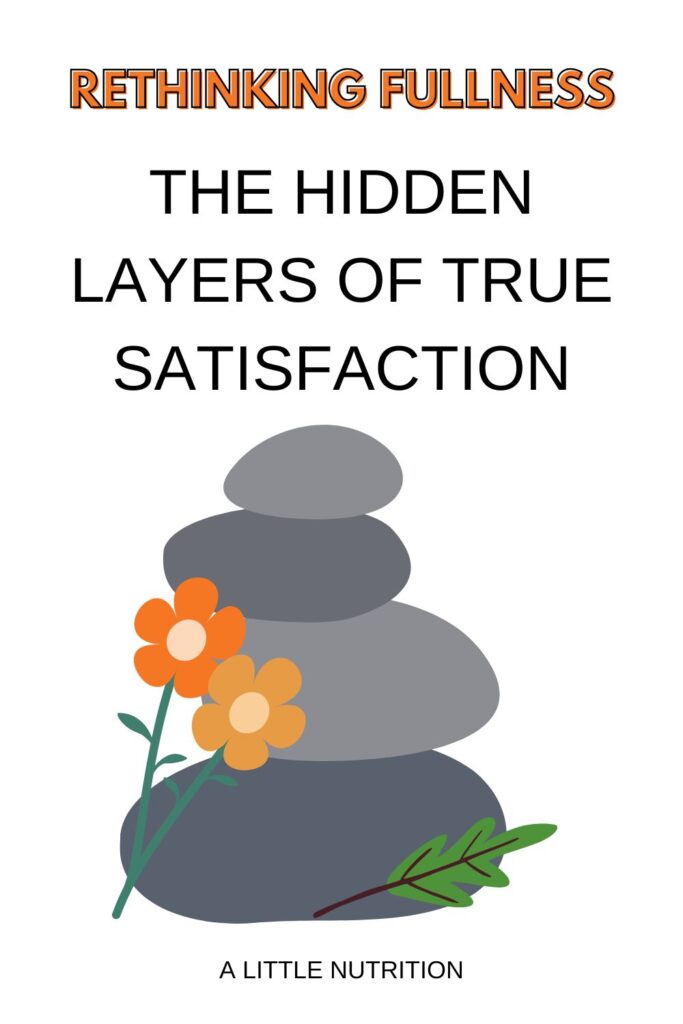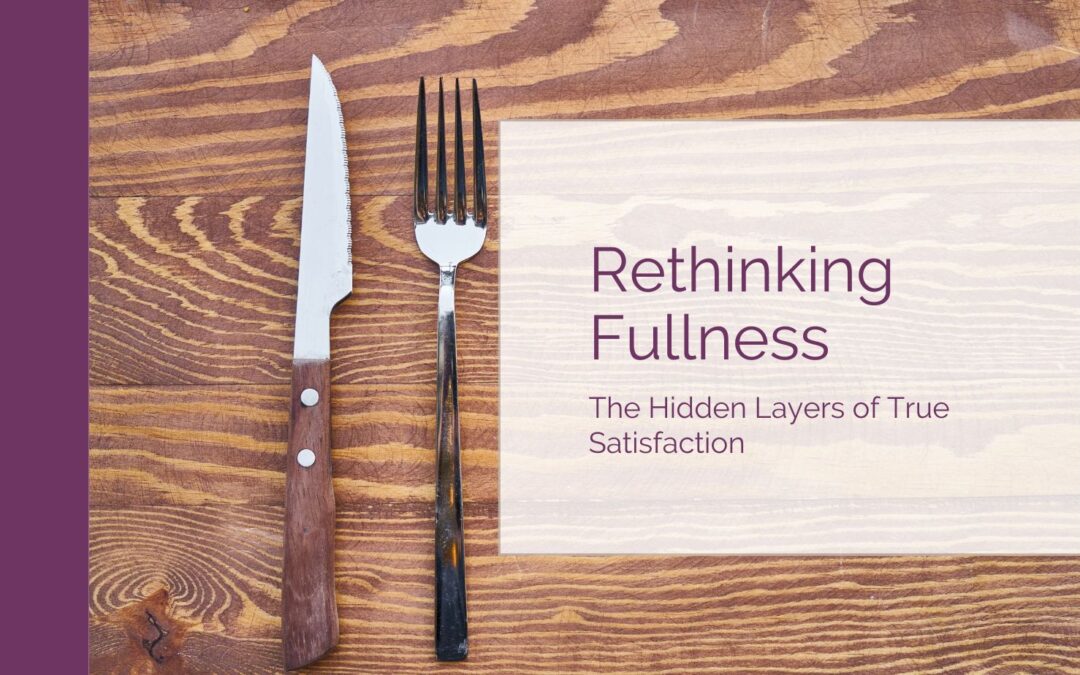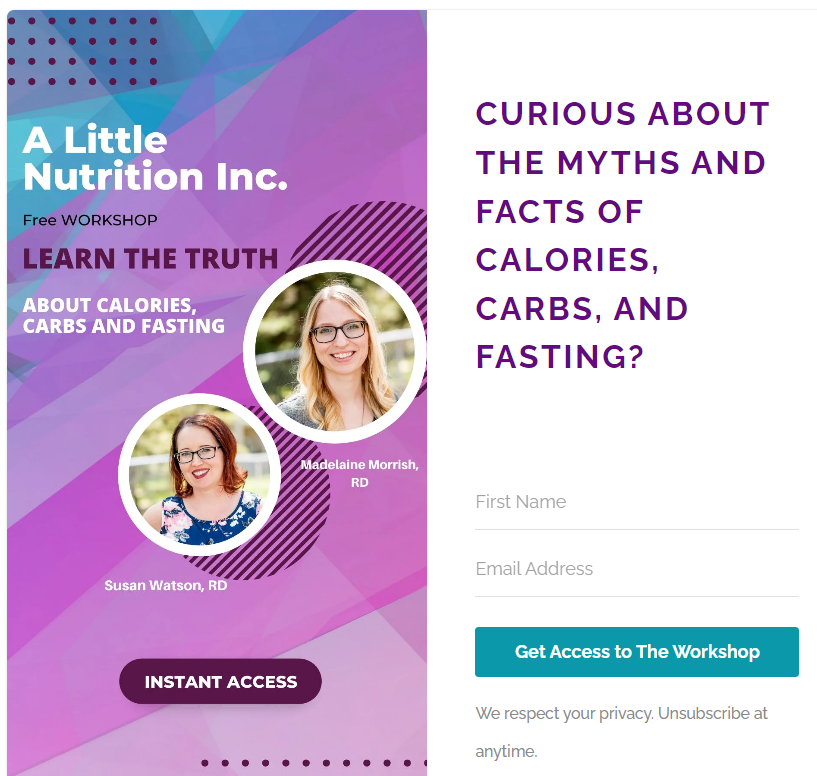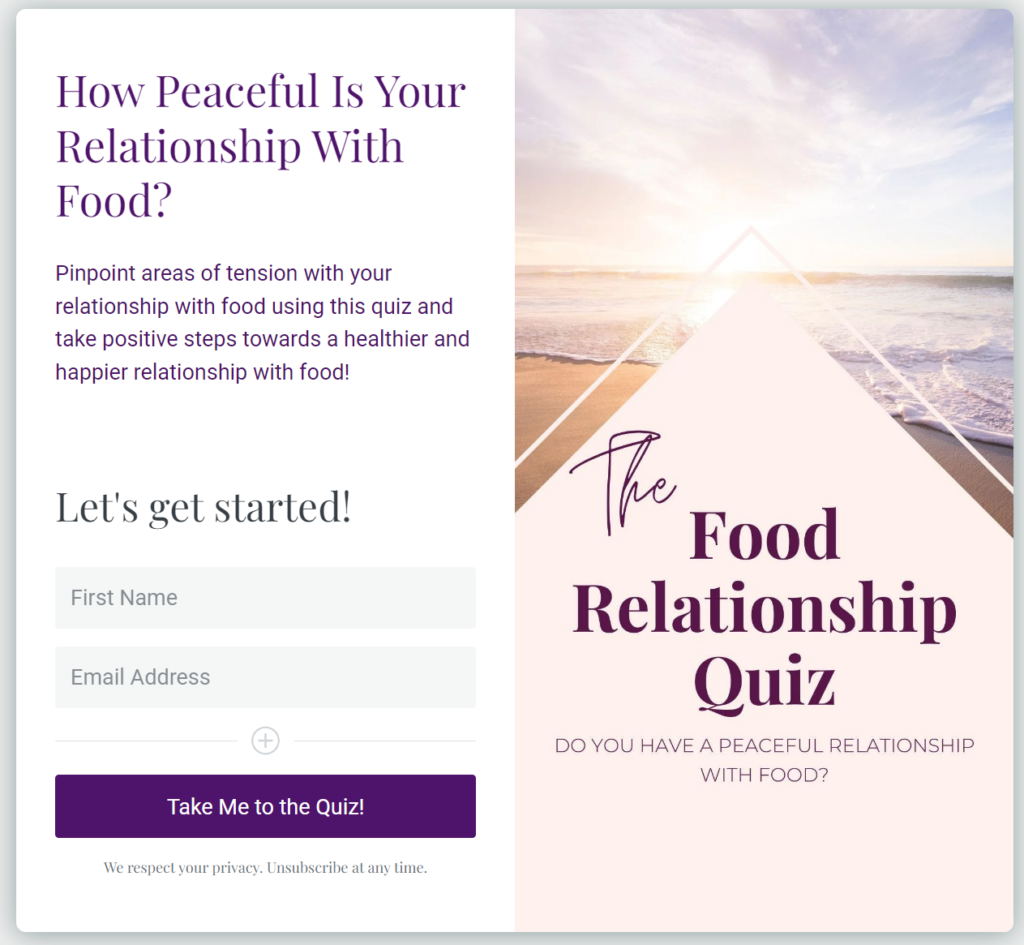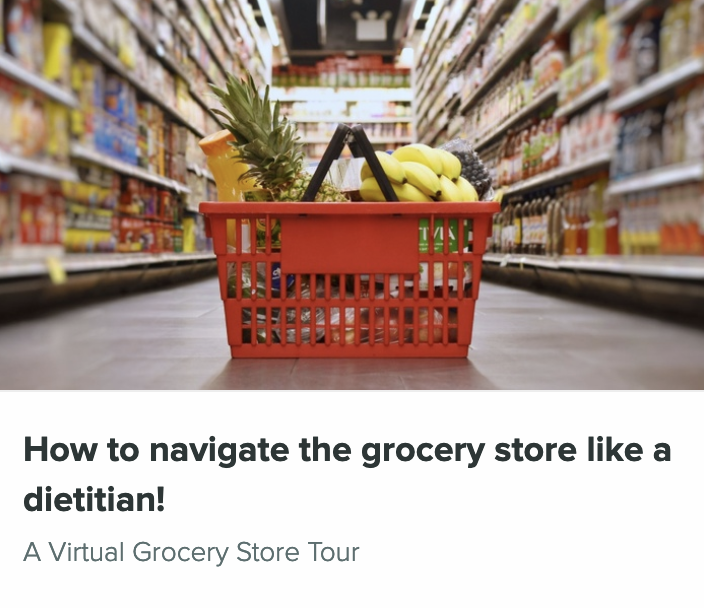We often associate feeling full with being pleased and satisfied; however, this is only sometimes the case regarding food. Eating until you are literally and figuratively stuffed does not necessarily guarantee a sense of satisfaction or pleasure. It can lead to physical discomfort both in our stomachs and in our mental well-being. Additionally, you’ll often see hunger-fullness scales that show satisfaction as being essentially neutral- not feeling hungry or full. The absence of hunger doesn’t mean you’ll be satisfied either! So how can we go about achieving satiation outside of fullness? This article will explore the issue of fullness mentality from a non-diet perspective. So you can better understand what your body needs from its foods.
Disclaimer: *note some of the following information may bring about disordered thoughts around eating. Please keep in mind that this article intends to bring awareness to misleading information put out by diet culture. Please take care of yourself.
Feeling Satisfaction Over Fullness Mentality — How to Find Balance
Have you ever had a meal that just hits the spot and leaves you feeling completely satisfied? That’s what we’re aiming for when we talk about a truly satisfying meal. It’s all about choosing foods that you genuinely enjoy and that make you feel good.
For example, if you’re craving chips and dip, reaching for carrots and hummus instead probably won’t leave you feeling satisfied. Similarly, if you eat a meal when you’re not very hungry, you might still eat it, but your satisfaction level will likely be lower than if you waited until you were moderately hungry.
On the flip side, if you let yourself get too hungry before eating, you might end up scarfing down your food so quickly that you don’t even have a chance to taste and enjoy it. And let’s be honest, that’s never a satisfying experience. You might not even remember what your meal tasted like!
Fullness Mentality: Not Completely Satisfied
The other thing that often happens is that folks may eat enough to no longer feel hungry but not enough to feel satisfied. You might decide to allow yourself to have the food you really want but don’t eat as much as you want. Perhaps you might even stop because you think you “should,” not because you’re ready to stop eating. You may be feeling unsatisfied because you didn’t get enough to feel content.
When you start eating a delicious meal when you’re moderately hungry, you’re more likely to find that you naturally reach a comfortable level of fullness. You might notice that the later bites don’t taste as good as the first few – that’s because your taste buds start to get desensitized once you reach a certain level of fullness. If the meal is something you truly enjoyed, it is likely to be satisfying too!
Feeling full is a physical sensation that occurs when your stomach is stretched due to the amount of food you’ve eaten. It’s a signal to your brain that you’ve had enough to eat. And often comes with feelings of discomfort or even pain.
The Facts Around Artificial Fullness
Sometimes, when people choose to have a salad at a meal or just vegetables, they might feel physical fullness but no satisfaction. You may still feel hungry or feel hungry an hour or two later. Experiencing this type of dissatisfaction is partially because there likely wasn’t much emotional enjoyment from this eating experience. Also, our bodies release hormones when we eat and digest carbs, fat, and protein, which help us to feel satisfied. That’s why drinking a ton of water to ‘fill up’ doesn’t work. Trying to fill up using water instead of eating can be harmful. Not only in terms of missing out on nutrients but also because it can affect the electrolyte levels in your blood. This can lead to severe consequences.
Hormones Role
Our hormones can also help explain why having foods with artificial sweeteners doesn’t seem to be as satisfying as their regularly sweetened counterparts- research suggests that while sugar can help reduce hunger hormones and help us to feel satisfied, artificial sweeteners don’t seem to have this effect. Additionally, artificially sweetened foods like candy or ice cream have a different texture and flavor than the real thing. Often, this isn’t as enjoyable or satisfying as eating the regular version of that food.
Feeling satisfied is a mental and emotional state that goes beyond simply feeling no longer hungry or full. It’s the feeling of being content and nourished after a meal, both physically and emotionally.
Fullness Mentality: How does Distracted Eating fit in?
Unsatifiaction can also happen when you consume a food you enjoy but are not present in the eating process. Think about how you might sit down with a snack like a bag of chips in front of the TV, and suddenly the bag is empty. Yet you don’t remember tasting the chips, let alone enjoying them! That can lead to not feeling satisfied because you missed out on the enjoyment of tasting your food. That doesn’t mean you should never eat while distracted. Let’s face it, we all do this sometimes, and on busy days, it might be the only way to get some nourishment! Instead, you might try to tune in every few bites and enjoy the food or realize that distracted eating will just be less satisfying.
Hold the Guilt: It’s Time to Enjoy Your Food
It’s a common belief that permitting oneself to eat until feeling satisfied may result in loss of control and overeating, which can be a frightening experience. However, is it truly a loss of control or simply a reaction to prior deprivation? The truth is that when we eat until we feel satisfied with a particular food or meal, the urge to eat later on decreases. When we’ve had enough, we feel content and can continue with our day.
Fullness Mentality: How to listen to your body for sustainable satisfaction instead of fullness
So how do you know if you’re truly satisfied after a meal? Here are some signs to look for:
- You feel energized: Truly satisfying meals provide your body with the nutrients it needs to feel energized and ready to take on the day. Feeling sluggish or lethargic after a meal may be a sign that you haven’t eaten enough nutrient-dense foods.
- You’re not thinking about food: When you’re truly satisfied after a meal, you’re not constantly thinking about what you’ll eat next. You can focus on other things without feeling distracted by hunger or cravings.
- You’re in tune with your body: Intuitive eating is all about listening to your body’s cues and eating based on what it needs. When you’re truly satisfied after a meal, you’re in tune with your body’s signals and know when it’s time to stop eating.
- You feel emotionally fulfilled: Eating isn’t just about physical nourishment – it’s also about emotional nourishment. Truly satisfying meals leave you feeling content, fulfilled, and emotionally nourished.
Remember, there’s no one-size-fits-all approach to eating. What’s truly satisfying for one person may not be satisfying for another. Eating an amount of food that feels satisfying one day might not feel as satisfying another day. The key is to listen to your body and pay attention to how you feel after a meal. With practice, you’ll learn to distinguish between feeling full and feeling truly satisfied- which can make all the difference in your relationship with food. Explore More: Understanding Your Hunger Clues
If you feel overwhelmed as you start this journey of healing your relationship with food, remember that help is always available. Please book an appointment with one of our registered dietitians or therapists today. Let’s start building a healthier relationship with food.
Book an Appointment HERE
Pin Me For Later
